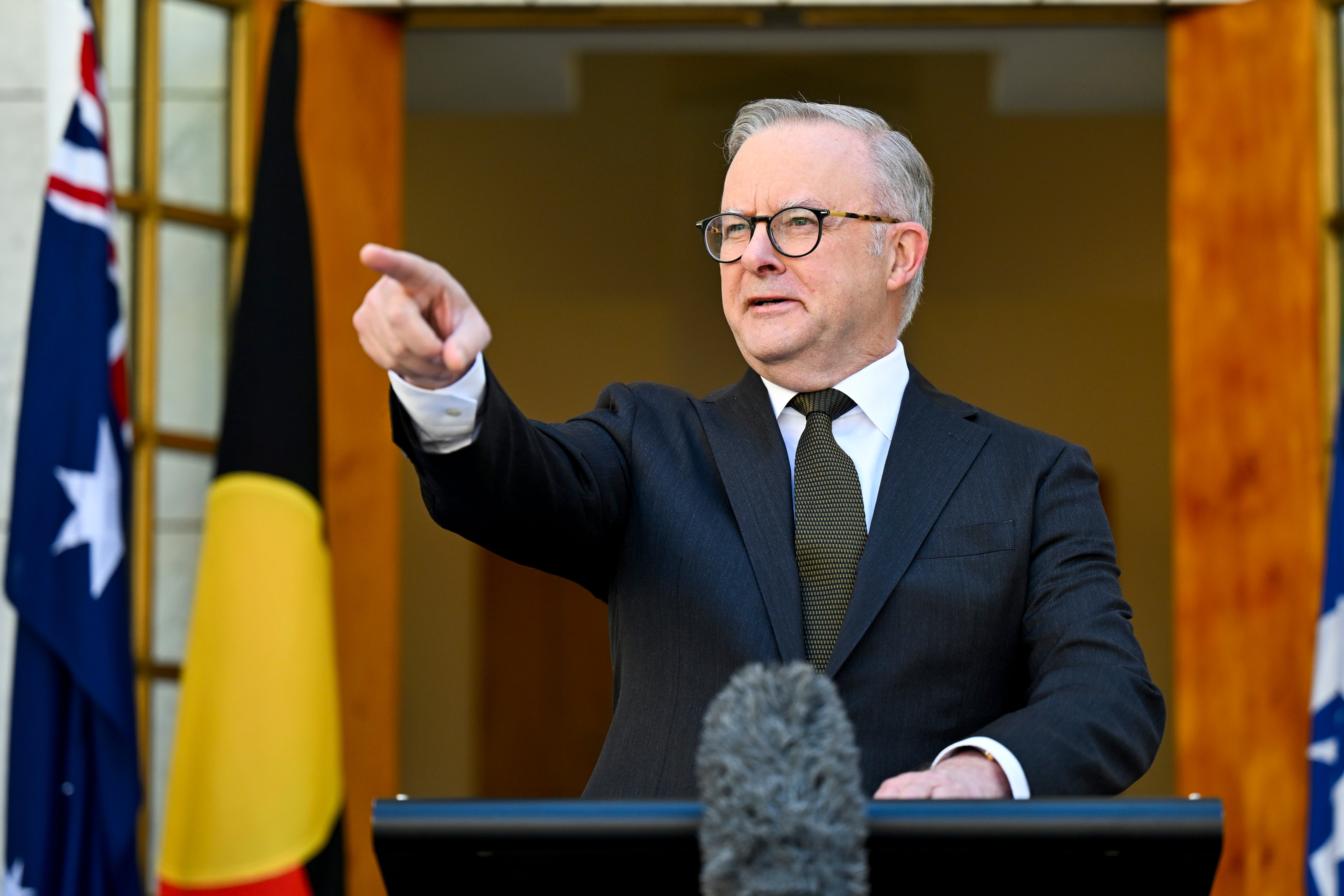Australia announces $118 million deal to enhance policing in Solomon Islands
Australia has announced it will pay for more police in Solomon Islands and create a police training center in the South Pacific island nation’s capital Honiara, where Chinese law enforcement instructors are already based under a bilateral security pact with Beijing

Your support helps us to tell the story
From reproductive rights to climate change to Big Tech, The Independent is on the ground when the story is developing. Whether it's investigating the financials of Elon Musk's pro-Trump PAC or producing our latest documentary, 'The A Word', which shines a light on the American women fighting for reproductive rights, we know how important it is to parse out the facts from the messaging.
At such a critical moment in US history, we need reporters on the ground. Your donation allows us to keep sending journalists to speak to both sides of the story.
The Independent is trusted by Americans across the entire political spectrum. And unlike many other quality news outlets, we choose not to lock Americans out of our reporting and analysis with paywalls. We believe quality journalism should be available to everyone, paid for by those who can afford it.
Your support makes all the difference.Australia announced on Friday it will pay for more police in Solomon Islands and create a police training center in the South Pacific island nation’s capital Honiara, where Chinese law enforcement instructors are already based under a bilateral security pact with Beijing.
Prime Minister Anthony Albanese said Australia would spend 190 million Australian dollars ($118 million) over four years on funding and training new Royal Solomon Islands Police Force recruits with a package that would “reduce any need for outside support.”
“My government is proud to make a significant investment in the police force of the Solomon Islands to ensure that they can continue to take primary responsibility for security in the Solomons,” Albanese told reporters in Australia's capital Canberra.
Albanese and his Solomons counterpart Jeremiah Manele said in a joint statement on Friday the package would build an enduring security capability in the Solomons, “thereby reducing its reliance on external partners over time.”
Australia has been energetically pursuing new bilateral security deals with its Pacific island neighbors since Beijing and the Solomans signed a security deal in 2022 under Manele’s predecessor, Manasseh Sogavare.
That deal has created fears among U.S. allies including Australia that the Chinese navy will be allowed to build a base in the strategically important Solomons.
Albanese’s Labor Party, which was the opposition at the time the pact was signed, described it as Australia’s worst foreign policy failure in the Pacific since World War II.
Australia has recently signed security deals with Papua New Guinea, Tuvalu and Nauru that effectively give Canberra veto powers over any security deals those countries might want to strike with third nations including China.
Asked if the new deal would require the Chinese security presence to be removed from the Solomons, Albanese did not directly answer.
“The Solomon Islands of course is a sovereign nation. They have some measures in place and we expect that to continue,” Albanese said.
“As a result of this agreement, what we’ve done is make sure that Australia remains the security partner of choice,” he added.
Mihai Sora, a Pacific islands expert at the Lowy Institute, a Sydney-based international policy think tank, said the agreement was a “clear win for Solomon Islands, which has gained a much-needed boost to its law and justice sector.”
“But Solomon Islands has not committed to scaling back the essentially permanent rotating presence of around 14 Chinese police trainers in the country, who have been running their own parallel training program with Solomon Islands police since 2022,” Sora said in an email.
“So, the agreement falls short of a solid strategic commitment to Australia from Solomon Islands, and there’s no indication that it would derail China-Solomon Islands security ties,” Sora added.
Blake Johnson, an analyst at the Australian Security Policy Institute, a Canberra-based think tank, said Chinese policing in the Pacific gives Beijing tools to control Chinese expatriates and pursue other goals.
“They can be very heavy-handed in their response sometimes. There are also concerns around data and privacy risks associated with Chinese police in the region,” Johnson said.
“Sometimes they’re providing surveillance equipment. There are concerns about what that is being used for and what it’s capturing,” he added.